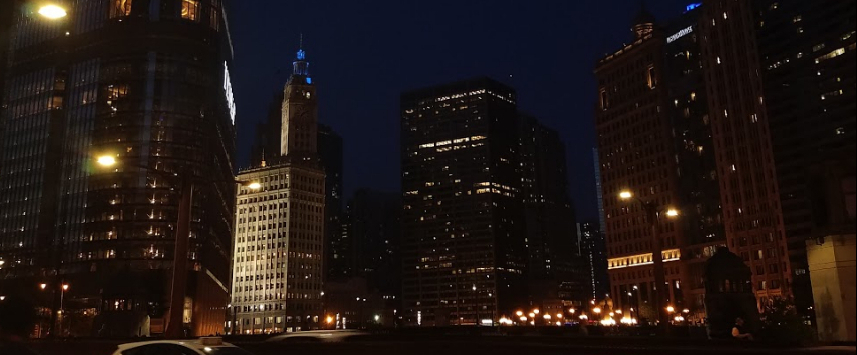The Illiberal Left
This article was written by Jared Kohler.
In the past decade American campuses have quickly shed their traditionally liberal values. The culprits are not who you might suspect.
The last fifty years have brought justice to the forefront of the American cultural milieu. Movements such as Black Lives Matter (BLM) began as peaceful protests against racial injustice. First-wave feminism sought to grant equal access for all women to pursue their futures just like men. LBGTQ groups campaigned for equal marriage rights regardless of one’s sex or the sex of their partner. The War on Drugs has lost public support with one major reason being its impact on minority communities. This social change was fundamental in shaping the values of the new millenium.
In 2018 the popular view of marriage is liberal— defined as a covenant between two people. Just ten years ago during the 2008 election, the “liberal candidate,” then Senator Barack Obama explained that his personal view on marriage was traditionally defined as the union of one man and one woman. Hillary Clinton held the same view. Now the unpopular and admittedly audacious Republican President Trump has supported same-sex marriage since the early 1990s. What is my point? The world has become more socially liberal since the turn of the millenium with one major exception— liberals.
First, let me define “liberal”. In its original sense, liberal comes from the latin root “liber” meaning free. This shares the same linguistic lineage as liberty meaning the “quality or state of being free." In terms of politics, Europeans understand the word liberal in its historical context. Over the course of the last 100 years in the U.S., the word liberal has been separated when referring to economic and political issues and is implied to mean “leftists”. Americans began to refer to leftist or Marxist voices as liberal voices. This is especially true when looking at the 1960s. Progressive liberals were illiberal in some ways but at that time respected and advocated for the right to free speech.
This blurred understanding of “liberal” creates a new dimension for the left. Free speech is a fundamentally liberal value. In the United States, “liberal” in its original sense would better describe “classical liberals” or “libertarians.” Libertarians who believe primarily in concepts such as voluntarism, laissez-faire economics, and spontaneous order (to a name a few) are fundamentally individualist in their moral framework. They interpret the smallest minority as the individual. This classical liberal view is fundamentally different from the “reductionist, Marxist, and economic” framework of the increasingly illiberal left. The leftist interpretation of the world is highly collectivist. Actions are not made by individual actors but rather the world organizes itself via power struggle between identity groups holding various forms of privilege. This split between liberal and illiberal creates a new dimension of social morality.
New York University social psychologist Jonathan Haidt explains this phenomenon specifically in relation to universities. He writes that the majority of college students are reasonable and want to learn “but on each campus there are some true believers who have reoriented their lives around the fight against evil.” Just as the fundamentally religious have an absolutist view on issues like sex and abortion, the illiberal left have created orthodoxy on American campuses. Moral policing has created a witch hunt of those who disagree with the tenants of the illiberal leftists. Safe space and PC culture are used to suppress dissenting viewpoints thus encouraging group identification (tribalism) as a means of social belonging.
The college campus has become, in a sense, a holy space. Instead of “original sin”, “white privilege” has become the over-generalized interpretation of a person’s oppression without regard to that person’s personal circumstance. We do not confess our sins in secrecy to a priest or pastor but rather, we create a “safe space” of like-minded people. The victimized have been given sainthood. Any unsuspecting person who expresses his or her opinion is met with hostility if their opinion is interpreted as “non-PC”. Those who challenge narratives such as the wage gap are met not with healthy disagreement but rather with intolerance. There is no room for discussion from the illiberal left nor a desire to persuade “the mansplainer” who is not a member of the group identity. The illiberal branch of the left is dangerous because their mode of thinking is “in-group” thus promoting group loyalty and discouraging free thought.
For example, let's say that I (a white male) contend the gender wage gap is a myth. I could provide genuine sources and remain respectful throughout my argument. I could say “only studies with a uni-varied analysis come to the conclusion of a wage gap. If we take into consideration other variables such as personality differences and career choices and familial preferences, the wage gap does not exist on a significant level.” The illiberal liberal might discredit what I have to say before I explain the logic of my argument. Instead, I am denounced and insulted for holding a sacrilegious view. My argument is not refuted either, the morally righteous would rather insult my character (the logical fallacy of ad hominem) or presume my contention is flawed simply because of the identity my appearance gives me.
I am not critiquing the viewpoints of BLM nor feminists nor transgenders. I am critiquing the means in which many in these groups “fight injustice” which have manifested itself in fundamentalist, illiberal, and dangerous hypermoralism — which is closer to social conservatism than social liberalism.
Illiberalism is not only a problem for the left. It has permeated both the right and the left. The illiberal right can be attributed to the successful campaign of Donald Trump. His platform is both authoritarian and protectionist. One difference is the illiberal right are forthright in their group identities and their borders are more literal. Leftists are able to create borders while proclaiming compassion and tolerance. Both forms of illiberalism create borders because they rely on group identity as a method of interpreting or judging the world.
In academia, liberals have infiltrated disciplines such as psychology, sociology, and anthropology. I am not arguing that there should be an equivalent number of conservatives and liberals. This is simply unrealistic. Of course accountants and engineers are more likely conservative (in the political sense) than a gender studies or psychology major. The primary concern with the lack of moral diversity is groupthink. Lord Acton’s famous cliché, “absolute power corrupts absolutely” applies not only to political power but also to social milieus. Over the past three decades, the number of self-proclaimed conservatives represented in academia have waned significantly.
The lack of moral diversity is as significant of a problem as the lack of ethnic diversity. Without moral diversity groupthink begins to stagnate progress. Liberalism is good for everyone. It gives the opportunity for all people to speak freely. Will there be offensive speech? Of course. Speech is meant to be offensive. How else does someone change their viewpoint but by leaving their comfort zone and engaging with other theories? Do you think that intolerant and prejudicial viewpoints can be eradicated by prohibiting intolerance or hate speech?
Blues and R&B musician Daryl Davis would disagree with this principle. If you are not familiar, Davis is an African-American who met with hundreds of KKK members since the early 1980s. Through friendship, he persuaded over 200 klan members to leave the KKK. When asked why he befriended openly racist people, he replied, “you have to talk to these people [and] see why they think what they think. Talking to non-racists doesn’t stop racists from being racist.”
A racist person is fundamentally illiberal. He is confined to the collectivist ideal that a person is worthy not because of their individualistic merits but because of their group identity. Does not collectivism, itself, lead to oppression? Is not the ultimate minority the individual? Is the Social Justice Warrior (SJW) philosophy not complicit in the same collectivist lie about group identity?









